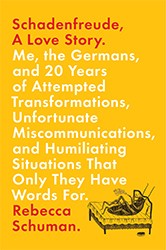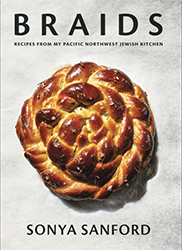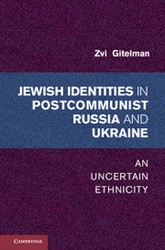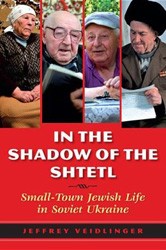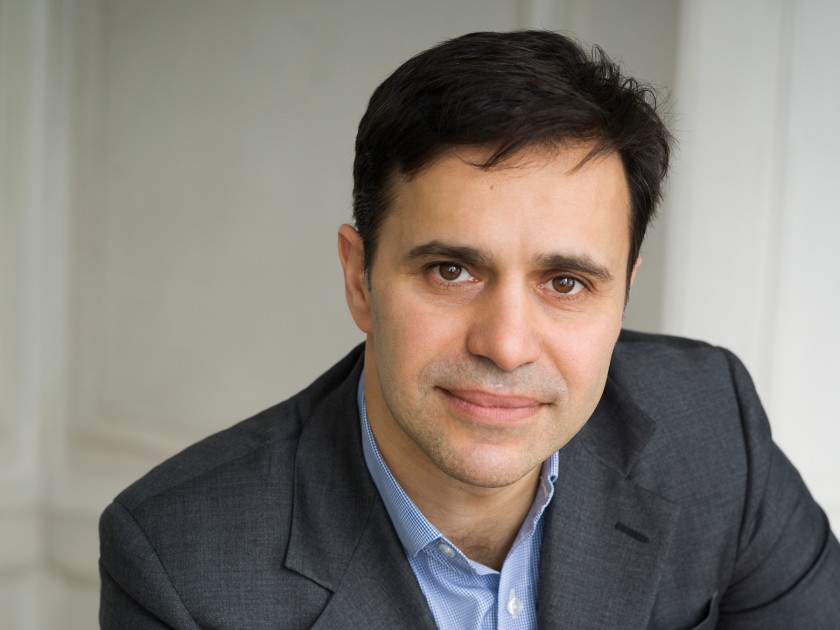
Photo by Nina Subin
A Terrible Country is Keith Gessen’s long-awaited second novel, which comes a decade after his celebrated debut, All the Sad Young Literary Men. It’s an auspicious book about a markedly inauspicious time and place — Russia circa 2008, a setting Gessen knows well. He lived in Moscow before his family’s immigration to Boston in 1981, and then returned to a transformed version of the city for a year in the new millennium.
Gessen’s protagonist is Andrei Kaplan, a Soviet-born Jew and struggling Russian literature PhD who also immigrated to Boston with his family as a child. When we first meet Andrei, he’s an archetypal sad-sack academic: his girlfriend has dumped him; his adviser thinks his research stinks (and reader, it kind of does). Meanwhile, his contribution to the Life of the Mind consists of answering emails around the clock from the students in his paid massive open online course, for which he earns an embarrassing pittance.
When Andrei’s older brother has to flee Russia after the failure of his latest get-rich-quick scheme, he asks Andrei to return to Moscow in order to take care of their ailing grandmother, Baba Seva.
So how much worse could Russia really be? At least he’ll have a free place to stay — so what if his childhood bunk beds take up most of the space? And he can play hockey there … right? (Sort of.) By the time we bid Andrei до свидания about a year later, he has both succeeded and failed on several fronts: helping Baba Seva, making a bunch of exciting new Socialist friends, advancing his career-of-sorts, and understanding whether — and if so, how — Russia really is a terrible country.
Rebecca Schuman: The running gag with Andrei’s academic ambitions is the extreme vagueness of his research topic, “Russia and Modernity,” which seems destined for failure. But the joke’s on us, because A Terrible Country is, of course, a very effective book about … Russia and modernity. And Russia, of course, is all over the news now.
Keith Gessen: It was a very strange feeling the last few years as I finally got closer to finishing the book. I began it in late 2009, when very few people in the U.S. cared much about Russia. Then Russia annexed Crimea in 2014, and I thought, “Oh no, I wish I’d finished my book already — people temporarily care about Russia again.” (I mean, I also thought, “This is horrible, why are the Russians invading Ukraine?”) And then, luckily for me — but very unluckily for our country and basically all of humanity — the Russians interfered in the election, and now it’s all Russia, all the time.
RS: How do you think your readers will react, now that Russia’s in the top tier of American freak-out topics?
KG: I don’t know how that’s going to play out — whether they’ll be curious enough about Russia to read the book, or disappointed that it’s not “tough enough” on the country or doesn’t have Putin appearing at the end with a gun in his hand. My hope is that it gives non-Russian readers some sense of what living there is actually like — how it’s not just torture chambers and executions on the street, even as it is also those things. I think that’s what Andrei struggles so much to get his head around — and what his grandmother has been dealing with her whole life: how to live in a country that you think is terrible, but is nonetheless your country and not one you’re willing to leave.
My hope is that it gives non-Russian readers some sense of what living there is actually like — how it’s not just torture chambers and executions on the street, even as it is also those things.
RS: Since I’m a failed academic myself, Andrei’s struggles with the job market evoke a world with which I am painfully familiar — but you had the good sense not to get a Russian literature doctorate, so clearly you did a bunch of deep dives into the milieu of academic detritus like me. Why put yourself through this when you don’t have to? Why make Andrei an academic?
KG: I did try, in various drafts, to make Andrei a writer or journalist or translator, which is more what I was doing when I was over in Russia. But it felt kind of dead on the page. It’s not that I have a theoretical problem with what’s come to be known as autofiction, where the main character basically is the author. I think Sheila Heti’s last two novels, for example, have been terrific, and I really admire the way she manages to do away with so much fictional scaffolding and explaining, and instead just gets straight to her point: how should we live our lives? What kind of people should we be? How can we tell? But that approach didn’t work for me.
Once I made Andrei an academic, it really opened up a lot of possibilities. I’d had Andrei the journalist reading various books and learning about Russia, which was kind of plodding, whereas Andrei the academic could already know stuff about Russian history and literature, and I didn’t need to explain why. At the same time, he’s not a know-it-all in the way Andrei the journalist might be. He understands Russian history, but he’s not very familiar with contemporary Russia, so that gives him an opportunity to learn about it. And in general, that’s a
nice thing about a character in academia: he’s relatively smart, he knows a lot of things, but he doesn’t know some essential thing.
RS: There are few failed careerists who elicit less sympathy than failed academics. Did you play off this preconception in your portrayal of Andrei?
KG: I don’t think academics are unsympathetic! Some of my best friends are academics. But the academic life does allow opportunities for humor and misunderstandings and absurdity, which I enjoyed. It also opens up a lot of room for descriptions of resentment and jealousy. Obviously, as a writer, I am aware that those feelings are not confined to academia. But there’s something really dramatic, and awful, about the zero-sum nature of the academic job market. The winners get jobs at Ivy League schools at a middle-class salary, and the losers get nothing — adjunct positions at state schools at a poverty wage.
But the academic life does allow opportunities for humor and misunderstandings and absurdity, which I enjoyed.
RS: Despite being a fourth-generation Russian Jew myself, I am woefully underread in the canon, so I didn’t get what I’m sure are many specific and clever allusions. But it just so happens that the only work of Russian literature I have read in the original Russian is Tolstoy’s short story “God Sees the Truth, But Waits” — and I saw a lot of similarities! Was this intentional?
KG: I actually had a different Tolstoy work in mind when I was writing this, an early novel called The Cossacks. I was also thinking of Chekhov’s play The Cherry Orchard. I mean, obviously I think of A Terrible Country as an American novel, but I’d be very happy if some Russianness rubbed off on it.
It should be said, more recent Russian fiction is funnier than Tolstoy. Venedikt Yerofeyev, Sergei Dovlatov, Vladimir Sorokin, Viktor Pelevin — these are all men — they’re essentially humorists. It’s the women — the best and best-known are the two Ludmilas, Petrushevskaya and Ulitskaya — who write the more ambitious, more depressing books. There was one male novelist, Zakhar Prilepin, who was trying to revive the tradition of the Russian social novel, and he wrote a couple of okay novels, but then he turned out to be a total fascist and now he’s in Eastern Ukraine fighting for the separatists. I’ll read a fascist writer if he’s really excellent, but Prilepin isn’t nearly that excellent.
RS: Where do you see yourself in the Russian-American-Jewish literary continuum?
KG: I have to admit, I think of my cohort as being very much the Russian Jewish — or really Soviet Jewish — one: Yelena Akhtiorskaya, David Bezmozgis, Sana Krasikov, Ellen Litman, Lara Vapnyar, Anya Ulinich, and of course Shteyngart. And others. I read all their work with great pleasure and recognition. And it’s interesting — I feel like in previous generations, Russian Jewish writers identified more as Jews than as Russians. Saul Bellow was born in St. Petersburg, and Philip Rahv, the cofounder of the Partisan Review, was born in what is now Ukraine. But I suspect both of them knew more Yiddish than Russian. Whereas, of course, my cohort doesn’t know any Yiddish at all. We were heavily Russified. We have at least as much in common with Russians of our generation as we do with American Jews of our generation. But that’s the story of the twentieth century, and not just in Russia. We are the products of that story. We are also now, for various historical reasons — not least the activist work of American Jewry — in a position to reflect on it. I hope we don’t blow it.
I have to admit, I think of my cohort as being very much the Russian Jewish — or really Soviet Jewish — one: Yelena Akhtiorskaya, David Bezmozgis, Sana Krasikov, Ellen Litman, Lara Vapnyar, Anya Ulinich, and of course Shteyngart.
RS: Mild spoiler alert: the ending of A Terrible Country is tragic in a perfect way, by which I mean that Andrei gets what he wanted all along, and it is the worst possible thing (after all, this is a book about, among other things, Russian literature).
KG: That’s a great way of putting it. I’ve found this true about life in general: people tend to get what they want, but rarely in the way that they want it, and usually too late. I did want there to be room for the reader to feel like they might have done it differently. Some readers have been very angry with Andrei, but it sounds like you were more understanding, and just kind of sad, for him and for all of humanity. Also a good response.
RS: Baba Seva is always dismissing people she sees in her neighborhood as anti-Semites, and Andrei seems to view this as part of her general crotchetiness. But it turns out that she’s right in at least one painful instance.
KG: It’s a tricky thing about Russia. Jews have been very much a part of Russian culture, especially in the twentieth century — Babel, Chagall, Joseph Brodsky, Stalin’s enemy Trotsky, and Stalin’s henchman Kaganovich. Jews made the Revolution and benefited from it, but eventually many were destroyed by it. Stalin’s Soviet Union saved the Jews from Hitler (with the help of the many Jews who fought in the Red Army) and then turned around and started planning to exile the Jews to the Far East. And in the post-Soviet period, in the tumult of the first years after the collapse, many Jews were able to use their links to the gray and black economies, which they had been forced into during Soviet times because of the limited opportunities afforded them in the official Soviet system, to win large market shares and become very wealthy. At the same time there was a significant Jewish exodus. You can’t feel it as much in a place like Moscow, but there are towns in Ukraine where a huge proportion of the Jews left after 1989.
On the one hand, the Russian attitude to this exodus is, “We miss the Jews.” On the other, it’s, “We knew it. Soviet propaganda always said they were disloyal, and now they’ve proved it.” And toward the Jews who remain — or who return, as Andrei does — there’s always this kind of suspicion, well below the surface, that they might not be fully “loyal” to Russia. And of course the Jews feel the same way: “Yes, this is where we’ve lived for generations, but they don’t want us, let’s leave.”
Jews made the Revolution and benefited from it, but eventually many were destroyed by it.
RS: I read this novel, in many ways, as a book about motherhood. The personal tragedy of Andrei’s mother — her absence — predicates much of the story.
KG: That’s a great reading. I hadn’t thought of it that way. It’s definitely the case, as you say, that the death of Baba Seva’s daughter — Andrei’s mother — is what makes their eventual relationship possible. It’s the rupture in the generations.
RS: Then of course, we have the other, even bigger mother: Mother Russia, who, as none other than Vladimir Putin himself says on the radio in the book, is “sick.” And both of those mothers converge in the figure of Baba Seva — who is also sick in her old age, and must be mothered by the relatively incompetent caregiver, Andrei.
KG: I hadn’t thought of the connection between the mothers in Andrei’s family and Mother Russia, both of whom loom as somewhat hectoring or guilt-inducing figures in the book.
RS: As I read of the challenges in getting Baba Seva down the stairs, or how Andrei would go through all this trouble to schlep her to the park only to have her hate it, or how she would only wear, like, two things, I also could not help but be reminded of my daughter, who is three — of how similar we are at the beginning and end of life.
KG: I started writing the book when I was thirty-four and unmarried, but about two-thirds of the way through the process, our son was born. I won’t say it was some kind of revolution in my understanding of fiction or of Andrei’s relationship with his grandmother … but it did help. One of the things I started thinking more about was touch — how with little children, a lot of the time, you just need to hug them and hold them, because other ways of communicating are not yet available. And the same can be true in very old age. It was true of my own grandmother when I was taking care of her, especially as she descended further into dementia. She couldn’t remember anything and she couldn’t really hear anything, but she still wanted to be touched, to have her hand held, to be hugged. She loved to be hugged.
RS: Is that also the best approach to Mother Russia?
KG: Mother Russia is a different sort of mother. More bearlike. You shouldn’t go
around hugging bears.
Rebecca Schuman is an author, essayist, and translator based in St. Louis, MO. Her work appears in Slate, the Atlantic, the Chronicle of Higher Education, The Hairpin, and more. She holds a PhD in German from the University of California-Irvine where she completed a dissertation on Franz Kafka and Ludwig Wittgenstein.
